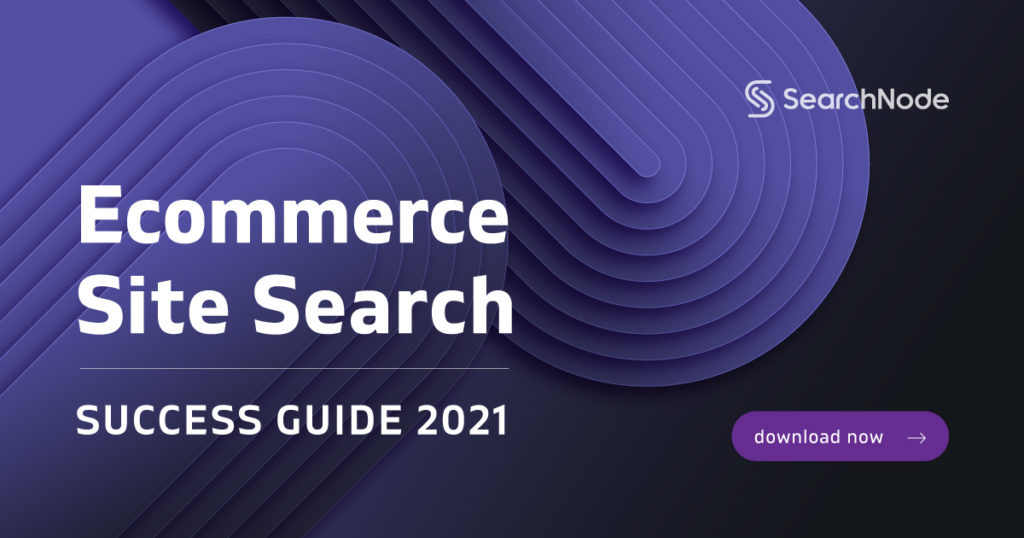How Technology is Revolutionizing eCommerce Search
The eCommerce industry is booming and does not show any signs of stopping soon. Forty percent of worldwide users have purchased different kinds of goods online from different devices, according to Statista. And the most visited or used eCommerce site globally is Amazon followed by Rakuten and Alibaba.
But what makes these sites so popular, particularly Amazon, which would generate over 60,000 results for the word ‘smartphone’?
The success of an eCommerce store lies not just in its marketing and catalog but also in its ability to provide relevant search results to users. To make this happen, eCommerce search providers integrate various technologies, such as the ones we discuss below.
Technologies Revolutionizing eCommerce Search:
1. Artificial Intelligence for customized experiences
AI has many forms, among which are machine learning (ML) and natural language processing (NLP). These have become ubiquitous, especially in eCommerce, because they offer elevated customer experiences. This can be seen when it comes to site search, which enables visitors to find the items they are looking for or complementary items. For example, a shopper is searching for a dress and the site provides suggestions on what would go well with it like an accessory or a pouch.
With machine learning, the search function gets to know the search behavior of users as they keep on using it. This means that its predictions become refined that they can offer item suggestions that would be relevant to site visitors. This gives a boost to personalization strategies as well because customers would only be seeing items they would be interested in.
And according to SmallBizDaily, this is something that consumers have already come to expect from retailers and eCommerce sites. The same article also cites that 73% of online shoppers have this expectation.
2.Voice search for hands-off item searching
Voice assistants are a big thing in mobile and smart devices/speakers and they are also well-used in computers with the availability of smart assistants like Amazon Alexa/Echo. In fact, Smart Insights mentions in an article that 20% of Google searches were made via voice and that the search giant expects this to rise by 2020.
Currently, voice search users are predominantly made up of millennials (40%). The interest in the use of the technology is also skewed towards younger users, as only a small portion of respondents who were 55 years old and above (7%) expressed that they are interested in it while 50% said they are not interested in it at all.
It’s currently not clear what impact the voice search will have on the eCommerce industry. Based on our research, the benchmark for voice search is only about 0,1-0,5% of all searches done in online stores, so it’s not trending just yet, but it has potential.
This could mean more searches done by voice in the future, which is why online stores should start thinking about enhancing this search method on their sites. With the advances in Artificial Intelligence, eCommerce site search solutions are becoming more powerful both in written and voice searches, thus enabling them to enhance the way customers interact with the site through its search engine.

3. Visual search for enhanced results
Usually, a search engine provides text results only. But with an eCommerce site search engine, it would be more beneficial to have a visual search.
First, let us discuss what is visual search.
You may be familiar with image search and reverse image search. Visual search is only a subcategory within the latter that performs pixel-to-pixel correlations between product photos to provide results that have similarities, visual-wise.
This would provide an augmented shopping experience because consumers can see immediately what kind of items turned up in the results. This could lead to higher satisfaction because they would not have to spend a lot of time going through each result to find what they are looking for.
Additionally, this integrates cross-selling and upselling with eCommerce site search, as the business can increase engagement, conversion possibilities, and retention by suggesting to ‘shop the look’ and offer tips on how to mix and match.
This technology can also be beneficial to eCommerce A/B testing because it allows site owners to identify what marketing strategies work with their target audience.
4. Contextual filters for effective searches
Amazon is considered as a great example of how to use eCommerce search solutions because of their success in this arena. This is because they provide highly relevant search results and one of the technologies they use for this is contextual filters.
Contextual filters act similarly to standard filters. However, what sets them aside is the fact that users can control them dynamically. They could set their preferred price range, brand, color, and other characteristics or attributes using this. For example, a user is looking for a book about an efficient project management approach. They receive an extensive list but still have difficulty getting the result they need. By using contextual filters, they can narrow down the original search results list so that they can get to the item they want with ease.

5. Natural search experiences for higher conversions
Powerful eCommerce search providers are now offering what is called custom stemming. This comes from natural language processing, which understands the way people use language naturally. For example, individuals search for running shoes but use the term ‘shoes for running’. An NLP engine goes to work here to realize that what the shopper actually means is running shoes.
Because of this capability, consumers can search in any form they want and still receive a relevant results list. And with this technology, eCommerce sites can gain higher conversions to leverage their eCommerce search strategy.
Making search effective
While various technologies enhance search results, it is still up to human hands to ensure that they are effective. That is because a search engine needs to read the contents and metadata of images, pages, and other contents to provide relevant results. In this arena, there are also various technologies available that can help. However, it still falls to the human user to ensure that the technology is implemented correctly. No two online stores and searches are the same, so one of the most crucial steps before adding any search to the eCommerce website is correct data processing and optimization. Extracting relevant data helps to create high search experience for users. By doing this, the business can be confident that consumers will find the items that they are looking for without frustration to keep them engaged and to retain them.





